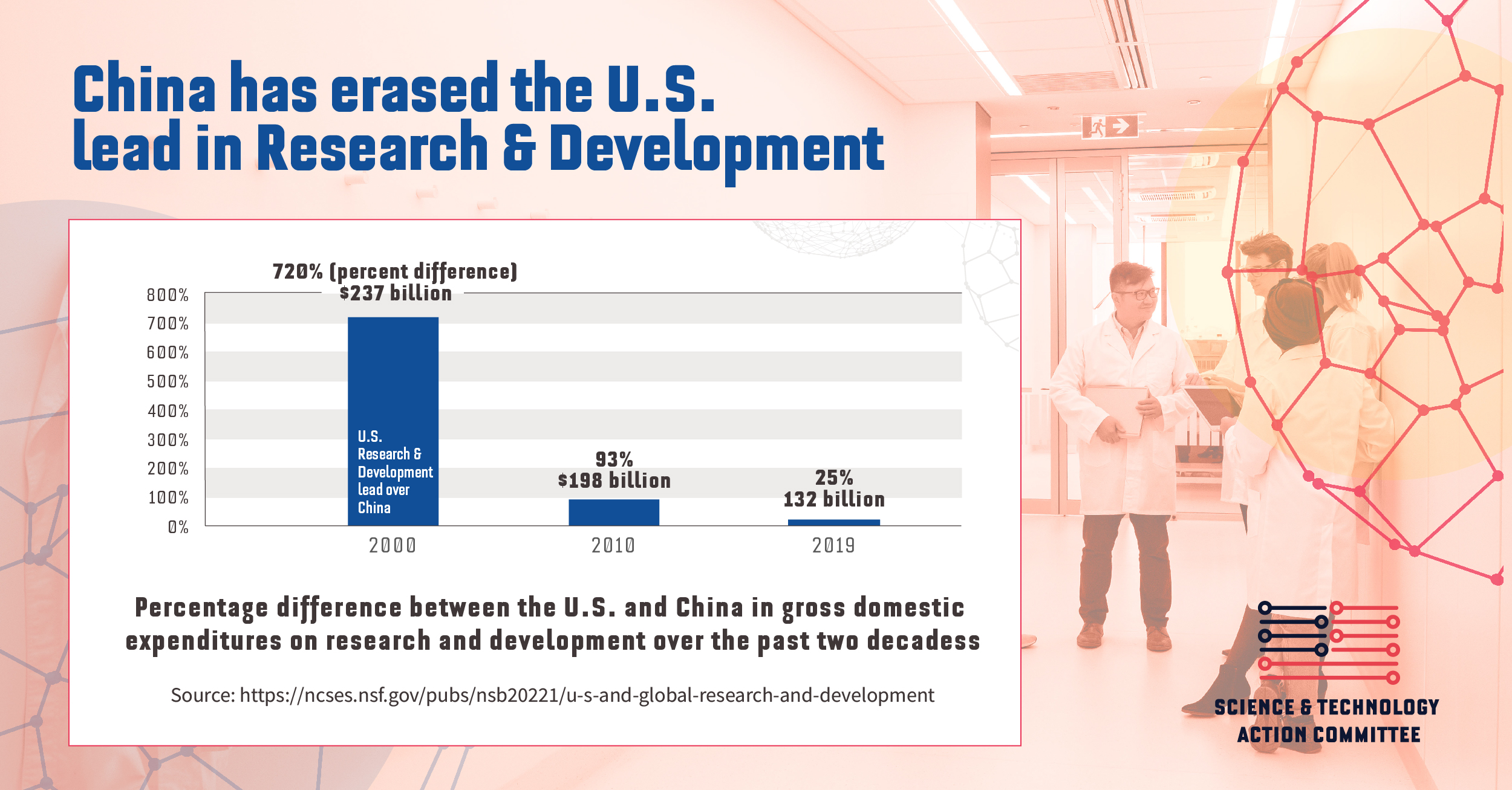That possibility will become reality if Washington does not pass a comprehensive competitiveness bill
The Risk
Once the undisputed leader in science and technology innovation, the United States’ position is in doubt today. U.S. leaders must pass comprehensive competitiveness legislation. If they don’t, important and timely scientific initiatives will be left behind, and we’ll be broadcasting to the world that we’re willing to pass the baton to China.
The Urgency
The U.S. has fallen behind China and other countries in the innovation investment race.
- Federal investment in the science and technology needed to spark innovations crucial to the future of the U.S. economy and national security has fallen to 0.7% of our GDP today compared to 1.9% in 1964.
- The U.S.’s share of global R&D spending declined 2% between 2010 and 2019, while China’s share increased 7%.
- China is on track to exceed the U.S. in science and technology investment by 2030.

The Opportunity
Finalizing a comprehensive bipartisan competitiveness agreement would propel U.S. innovation and the economy for years to come.
Both parties and the broader public back essential investments that should be included in any competitiveness bill. These include funding and increased emphases at the National Science Foundation on Technology, Innovation and Partnerships (TIP), as well as expanding domestic semiconductor production, creating new regional technology hubs, refurbishing America’s crumbling science and technology infrastructure, building an expansive and inclusive STEM workforce, and authorizing the National Science Corps program to establish a nationwide community of expert STEM teachers.
Let’s Get It Done
Lawmakers are running out of time to pass this once-in-a-generation investment in science and technology ahead of the midterm elections. If Washington fails to act by not passing a comprehensive bill, not only will years of diligent work be wasted, but we will be well on the path to ceding our position as a global leader in innovation and technology to China.
We’ve waited far too long for lawmakers to secure the resources we need to stay globally competitive. The time to act is now.
The Science Community Agrees
The Science & Technology Action Committee isn’t alone in its urgent call on Washington to pass comprehensive competitiveness legislation. It joined the Federation of American Scientists and more than 30 other of America’s leading science, engineering, and higher education institutions in recently sending a letter urging Washington to pass a broad agreement on the competitiveness package by the end of July.
Help Make the Case for Greater Investment in Science & Technology
Share this article with your network.